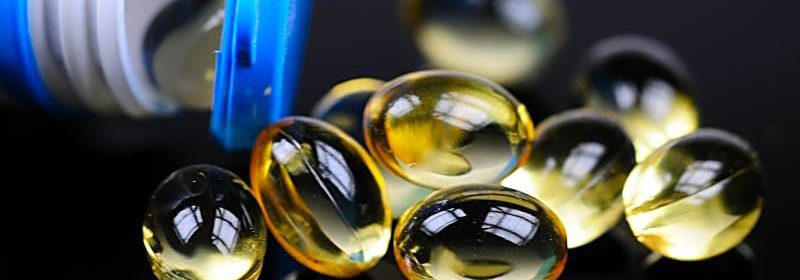Vit D in Pregnancy May Protect Breastfeeding Infants From Eczema

Among women who took vitamin D supplements during pregnancy and who breastfed for more than 1 month, the likelihood of atopic eczema in the baby’s first year was reduced, according to results of a clinical trial.
“Our data provide the first randomized controlled trial evidence of a protective effect of antenatal cholecalciferol supplementation on risk of infantile atopic eczema, with the effect only seen in infants that were breastfed for more than 1 month,” write lead study author Sarah El-Heis, MRCP, DM, and colleagues.
“The findings support a developmental influence on infantile atopic eczema and point to gestational cholecalciferol supplementation as a preventive strategy to reduce the burden of atopic eczema during infancy,” El-Heis, an academic clinical lecturer in dermatology at the Medical Research Council Lifecourse Epidemiology Center of the University of Southampton, said in a presentation at the Society for Investigative Dermatology (SID) 2022 Annual Meeting in Portland
The study also was published June 28 in the British Journal of Dermatology.
El-Heis and her colleagues analyzed data from one of the three UK study sites involved in the double-blind Maternal Vitamin D Osteoporosis Study (MAVIDOS), which enrolled participants between 2008 and 2014.
The women enrolled at the University of Southampton site were of age 18 or older. They had had a singleton pregnancy. Serum 25-hydroxy vitamin D [25(OH)D] levels were 25 – 100 nmol/L, and calcium levels were <2.75 mmol/L.
Those who had metabolic bone disease, kidney stones, hyperparathyroidism, or hypercalciuria or who were taking >400 IU/day of vitamin D supplements or medication known to interfere with fetal growth or whose fetus had a major anomaly were excluded.
The study included 1134 women. Half of the participants were randomly assigned to receive cholecalciferol 1000 IU/day from around 14 weeks’ gestation until delivery, and half were assigned to receive placebo. Their babies were assessed for atopic eczema at 12, 24, and 48 months of age.
The maternal and infant characteristics were similar in both groups, but the treatment group tended to breastfeed longer.
Infants Appear to Be Protected Up to 1 Year of Age
Using logistic regression, the researchers analyzed links between maternal cholecalciferol 1000 IU/day supplements or placebo and atopic eczema risk in their offspring.
-
After adjustments for breastfeeding duration, among the 636 infants assessed at 12 months, those whose mothers received cholecalciferol had lower odds ratios (ORs) of atopic eczema than those whose mothers received placebo (OR, 0.55; 95% CI, 0.32 – 0.97).
-
The risk of atopic eczema at 12 months was reduced only for children in the treatment group who were breastfed longer than 1 month (OR, 0.48; 95% CI, 0.24 – 0.94), further analysis showed. Those who were breastfed for less than 1 month showed no reduced risk.
-
The combined effect of vitamin D and breastfeeding for longer than 1 month weakened after 1 year and was not statistically significant among the 611 children assessed at 24 months and the 450 children assessed at 48 months. The ORs of atopic eczema in the treatment group and in the control group increased to 0.76 (95% CI, 0.47 – 1.23) and 0.75 (95% CI, 0.37 – 1.52), respectively.
-
At baseline, the mean maternal serum 25(OH)D levels in the treatment group (46.0 nmol/L) and in the control group (44.7 nmol/L) were similar. But by late pregnancy, maternal serum 25(OH)D levels in the treatment group were higher (67.4 nmol/L) than in the control group (42.4 nmol/L).
The authors note that strengths of the study include its design, the uniformity of criteria used to diagnose atopic eczema, and the similarity of both pregnant groups in their intake of vitamin D during the study.
Limitations included the lack of ultraviolet B light exposure data, the lack of non-White women in the study, the lack of measurement of cord blood and offspring 25(OH)D levels, and the exclusion of women with baseline 25(OH)D concentrations <25 nmol/L.
Dr Kalyani Marathe
“This is an interesting study that brings up the possibility that maternal factors during pregnancy may impact atopic dermatitis,” Kalyani S. Marathe, MD, MPH, the director of the Division of Dermatology at Cincinnati Children’s Hospital Medical Center, in Ohio, told Medscape Medical News.
The results are mixed, though, she noted.
“While some impact on the risk of eczema is seen at 1 year of age, that protective effect is gone by 2 years and 4 years,” Marathe, who was not involved in the study, said in an email. “So if maternal supplementation does improve eczema, the effect is not long-lasting.
“The other complicating factor is that the babies who showed reduction in eczema were also the ones who were breastfed longer than 1 month,” she added. “We know that breastfeeding is associated with several factors, including socioeconomic status, so it is difficult to tease out the relationships here.
“Vitamin D has become a very hot topic lately and seems to have protective effects in many areas of healthcare,” Marathe said. “These results may motivate pregnant women to be compliant with their prenatal vitamins that contain the amount of vitamin D studied here.”
The study received grant support. Several authors have disclosed financial relationships with pharmaceutical and nutritional products industries. El-Heis and Marathe report no relevant financial relationships.
Br J Dermatol. Published online June 28, 2022. Full text
For more news, follow Medscape on Facebook, Twitter, Instagram, and YouTube.
Source: Read Full Article
